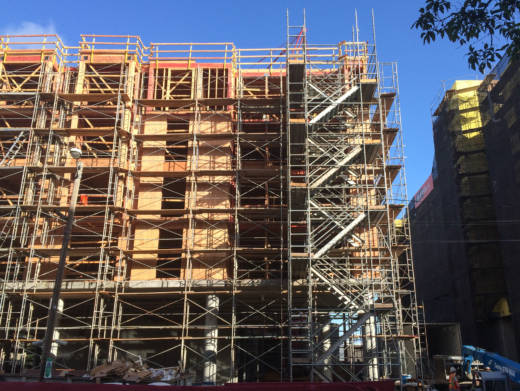San Francisco state Sen. Scott Wiener describes his SB 827 — the lightning-rod legislation that has stirred statewide debate over housing policy with its mandate for intense development near transit — as “a very aggressive bill.”
But he has also been consistent in calling the bill, which would override key aspects of local zoning throughout the state and require cities to allow multi-story apartment or condo buildings within a half-mile of train stops and a quarter-mile of busy bus routes, as a work in progress.
The latest proof of that: Wiener introduced a second round of extensive amendments as the legislation moves toward a make-or-break committee hearing sometime in the next two weeks.
“I’ve said from the beginning … that we welcome constructive feedback, not only from supporters but from critics of the bill,” Wiener said Tuesday. “And over the last few months we’ve gotten some really amazing from people, including my colleagues, advocates, members of the community, local elected officials.”
The bill, introduced in early January and sponsored by pro-development “Yes In My Back Yard” activists backed largely by tech sector money, has aroused intense opposition among city officials and community groups throughout the state.

